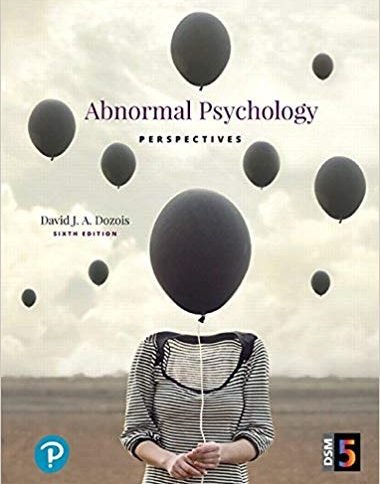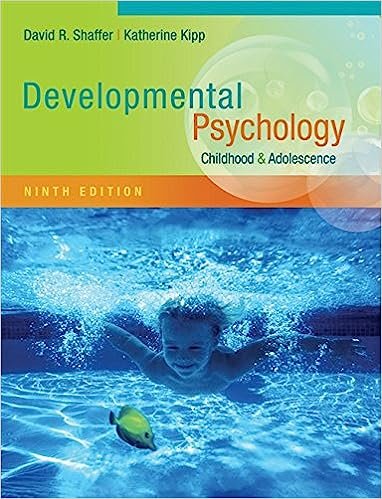Test Bank For Abnormal Psychology The Science And Treatment Of Psychological Disorders 13th Edition
Chapter 05: Mood Disorders
Multiple Choice
- In the opening clinical case, Mary M. reported a lack of energy, difficulty sleeping, loss of appetite, difficulty concentrating, and a loss of interest in activities she previously enjoyed. From this information, which of the following is the most likely diagnosis for Mary M.?
- a) Eating disorder
- b) Major depressive disorder
- c) Bipolar disorder
- d) Generalized anxiety disorder
Ans: b
Type: Applied
Section ref: Introduction
Difficulty: Easy
Learning Objective: Describe the symptoms of depression and mania, the diagnostic criteria for depressive disorders and bipolar disorders, and the epidemiology of these disorders.
Bloomcode: Application
- Which of the following is not considered a common symptom of depression?
- a) Psychomotor retardation or agitation
- b) Sleeping too much or too little
- c) Feelings of worthlessness or excessive guilt
- d) All of the above are common symptoms of depression
Ans: d
Type: Factual
Section ref: Clinical Descriptions and Epidemiology of Mood Disorders
Difficulty: Medium
Learning Objective: Describe the symptoms of depression and mania, the diagnostic criteria for depressive disorders and bipolar disorders, and the epidemiology of these disorders.
Bloomcode: Analysis
- The DSM-5 includes __________ new depressive disorders.
- a) 2
- b) 3
- c) 4
- d) 5
Ans: a
Type: Factual
Section ref: Clinical Descriptions and Epidemiology of Mood Disorders
Difficulty: Easy
Learning Objective: Describe the symptoms of depression and mania, the diagnostic criteria for depressive disorders and bipolar disorders, and the epidemiology of these disorders.
Bloomcode: Knowledge
- Disruptive mood dysregulation disorder involves
- a) children.
- b) adolescents.
- c) adults.
- d) both children and adolescents.
Ans: d
Type: Factual
Section ref: Clinical Descriptions and Epidemiology of Mood Disorders
Difficulty: Easy
Learning Objective: Describe the symptoms of depression and mania, the diagnostic criteria for depressive disorders and bipolar disorders, and the epidemiology of these disorders.
Bloomcode: Knowledge
- The slowing of thoughts and movements by those experiencing depression is called
- a) Psychomotor agitation.
- b) Social withdrawal.
- c) Psychomotor retardation.
- d) Melancholia.
Ans: c
Type: Factual
Section ref: Clinical Descriptions and Epidemiology of Mood Disorders
Difficulty: Easy
Learning Objective: Describe the symptoms of depression and mania, the diagnostic criteria for depressive disorders and bipolar disorders, and the epidemiology of these disorders.
Bloomcode: Knowledge
- Psychomotor agitation involves
- a) Pacing.
- b) Fidgeting.
- c) Wringing hands.
- d) All of the above.
Ans: d
Type: Factual
Section ref: Clinical Descriptions and Epidemiology of Mood Disorders
Difficulty: Easy
Learning Objective: Describe the symptoms of depression and mania, the diagnostic criteria for depressive disorders and bipolar disorders, and the epidemiology of these disorders.
Bloomcode: Knowledge
- According to the DSM-5, bereavement-related symptoms are no longer excluded from the diagnosis of
- a) Major depressive disorder
- b) Persistent depressive disorder
- c) Premenstrual Dysphoric disorder
- d) Bipolar I disorder
Ans: a
Type: Factual
Section ref: Clinical Descriptions and Epidemiology of Mood Disorders
Difficulty: Medium
Learning Objective: Describe the symptoms of depression and mania, the diagnostic criteria for depressive disorders and bipolar disorders, and the epidemiology of these disorders.
Bloomcode: Comprehension
- Which of the following disorders is newly included in the DSM-5?
- a) Bipolar I disorder
- b) Bipolar II disorder
- c) Bipolar III disorder
- d) Persistent depressive disorder
Ans: d
Type: Factual
Section ref: Clinical Descriptions and Epidemiology of Mood Disorders
Difficulty: Easy
Learning Objective: Describe the symptoms of depression and mania, the diagnostic criteria for depressive disorders and bipolar disorders, and the epidemiology of these disorders.
Bloomcode: Knowledge











Reviews
There are no reviews yet.